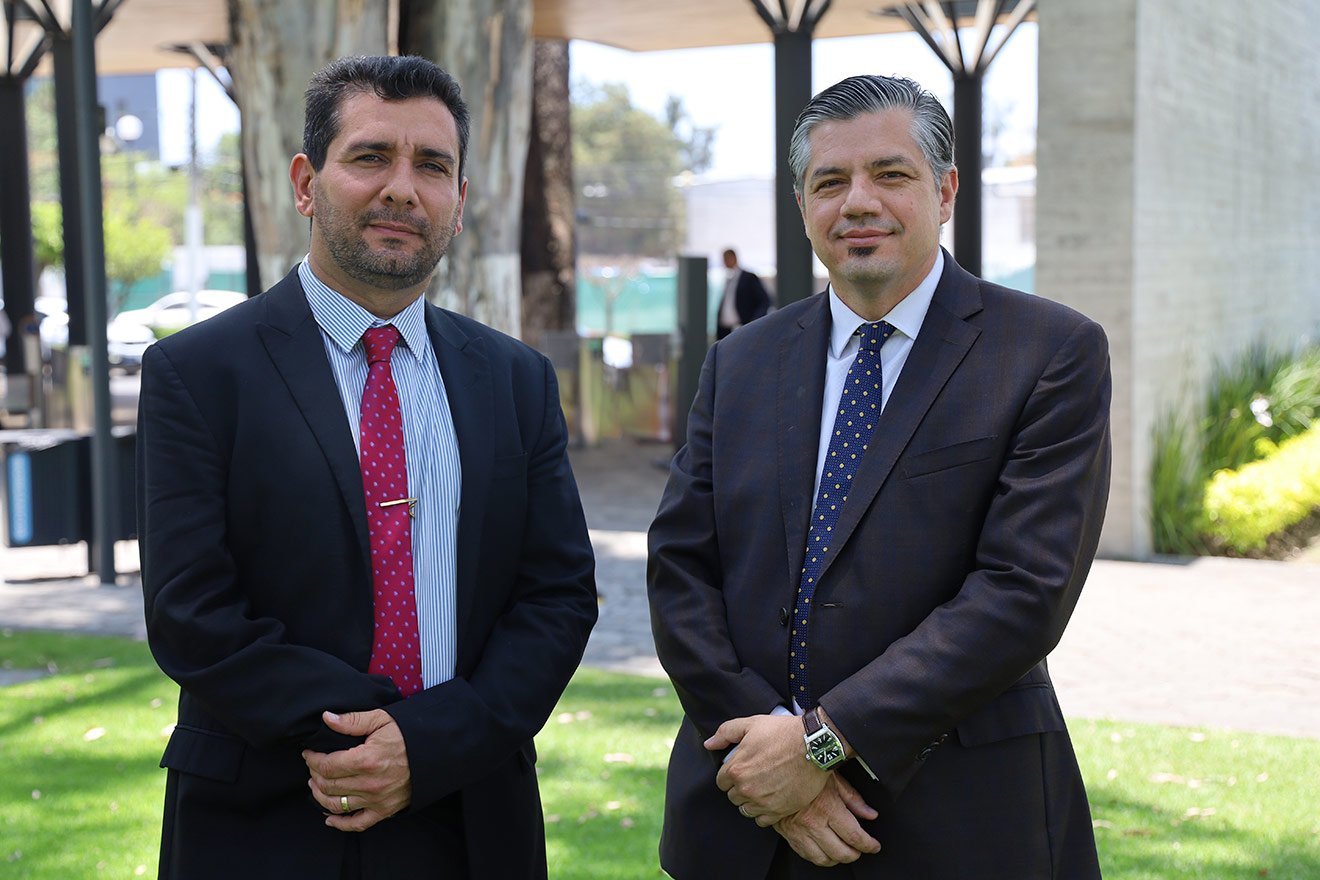Mexico City, Mexico, May 28, 2024.- The Universidad Panamericana y Mexico Exponential held the panel Cloud computing. Enabler of digital finance on Wednesday, May 15 at the university's Aula Magna.
During the event, experts agreed on the significant impact of cloud computing in the efficient management of transaction costs, design of products and services tailored to users, access to rural areas and management of large volumes of data without the costs associated with physical servers.
The panel was attended by prominent professionals such as Víctor Carreón, professor-researcher at the Centro de Investigaciones y Docencia Económicas; Mary Pily Loo, general director of Operational and Technological Risk of the National Banking and Securities Commission and Vidal Llerenas, economist and specialist in digital finance.
Román Rodríguez, professor-researcher, and Álvaro Vértiz, professor and moderator of the panel, represented the Universidad Panamericana.

What is cloud computing?
Cloud computing, as an enabler of digital finance, is an essential technological tool that allows to manage more efficiently the reduction of transaction costs, design products and services tailored to the needs of users, and reach rural areas where the physical presence of a commission agent is unfeasible.
It also facilitates the management of large volumes of information and databases, eliminating the high costs associated with physical servers.

Benefits of this tool
During the meeting, Álvaro Vértiz opened the discussion with a question on how to promote technological innovation in digital finance from public policies, without compromising the security and privacy of users.
In response, Victor Carreon stressed the need for a reengineering of the current market architecture, given that technology is advancing faster than regulation, and stated that "the magic of the regulator is to design the best regulatory scheme that guarantees, at the lowest cost, the continuity of operations".

In addition, Mary Pily Loo emphasized the importance of finding a balance in regulation to control risks without slowing down innovation. "The authority must guarantee the continuity of operations, establishing requirements for both financial institutions and technology providers, although these costs often fall on end users," she said.
Román Rodríguez pointed out how technology has transformed the financial sector, eliminating barriers to entry, increasing competition and reducing operating and financial services costs. He also highlighted the crucial role of technology in financial inclusion, which must be reinforced with financial education.

Vidal Llerenas reflected on the state of regulation with respect to technological innovation, and highlighted the need for a balance between security and innovation. He also mentioned the importance of fostering a dialogue among the sector's stakeholders and strengthening government institutions.

Conclusions on cloud computing
The meeting concluded that cloud computing is an essential enabler for digital finance, offering multiple benefits in efficiency and accessibility. However, it is crucial to have a regulatory framework that protects users and ensures business continuity without hindering technological innovation.
Collaboration between authorities, financial institutions and technology providers is essential to achieve this balance.
Learn more about the Universidad Panamericana at: https://www.up.edu.mx/sobre-la-universidad-modelo-educativo/








